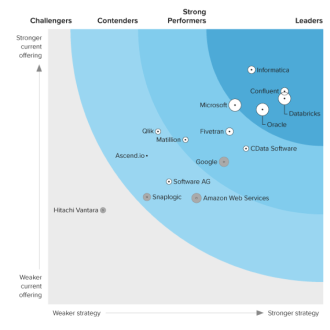Discover how a bimodal integration strategy can address the major data management challenges facing your organization today.
Get the Report →Replicate Microsoft Planner Data to Multiple Databases
Replicate Microsoft Planner data to disparate databases with a single configuration.
Always-on applications rely on automatic failover capabilities and real-time access to data. CData Sync for Microsoft Planner integrates live Microsoft Planner data into your mirrored databases, always-on cloud databases, and other databases such as your reporting server: Automatically synchronize with remote Microsoft Planner data from Windows or any machine running Java.
You can use Sync's command-line interface (CLI) to easily control almost all aspects of the replication. You can use the CLI to replicate Microsoft Planner data to one or many databases without any need to change your configuration.
Connect to Microsoft Planner Data
You can save connection strings and other settings like email notifications in XML configuration files.
The following example shows how to replicate to SQLite.
Windows
<?xml version="1.0" encoding="UTF-8" ?>
<CDataSync><DatabaseType>SQLite</DatabaseType>
<DatabaseProvider>System.Data.SQLite</DatabaseProvider>
<ConnectionString>OAuthClientId=MyApplicationId;OAuthClientSecret=MySecretKey;CallbackURL=http://localhost:33333;</ConnectionString>
<ReplicateAll>False</ReplicateAll>
<NotificationUserName></NotificationUserName>
<DatabaseConnectionString>Data Source=C:\my.db</DatabaseConnectionString>
<TaskSchedulerStartTime>09:51</TaskSchedulerStartTime>
<TaskSchedulerInterval>Never</TaskSchedulerInterval>
</CDataSync>
Java
<?xml version="1.0" encoding="UTF-8" ?>
<CDataSync><DatabaseType>SQLite</DatabaseType><DatabaseProvider>org.sqlite.JDBC</DatabaseProvider>
<ConnectionString>OAuthClientId=MyApplicationId;OAuthClientSecret=MySecretKey;CallbackURL=http://localhost:33333;</ConnectionString>
<ReplicateAll>False</ReplicateAll>
<NotificationUserName></NotificationUserName>
<DatabaseConnectionString>Data Source=C:\my.db</DatabaseConnectionString>
</CDataSync>
You can connect without setting any connection properties for your user credentials. Below are the minimum connection properties required to connect.
- InitiateOAuth: Set this to GETANDREFRESH. You can use InitiateOAuth to avoid repeating the OAuth exchange and manually setting the OAuthAccessToken.
- Tenant (optional): Set this if you wish to authenticate to a different tenant than your default. This is required to work with an organization not on your default Tenant.
When you connect the Driver opens the MS Planner OAuth endpoint in your default browser. Log in and grant permissions to the Driver. The Driver then completes the OAuth process.
- Extracts the access token from the callback URL and authenticates requests.
- Obtains a new access token when the old one expires.
- Saves OAuth values in OAuthSettingsLocation to be persisted across connections.
Configure Replication Queries
Sync enables you to control replication with standard SQL. The REPLICATE statement is a high-level command that caches and maintains a table in your database. You can define any SELECT query supported by the Microsoft Planner API. The statement below caches and incrementally updates a table of Microsoft Planner data:
REPLICATE Tasks;
You can specify a file containing the replication queries. This enables you to use the same replication queries to replicate to several databases.
Run Sync
After you have configured the connection strings and replication queries, you can run Sync with the following command-line options:
Windows
MicrosoftPlannerSync.exe -g MySQLiteConfig.xml -f MicrosoftPlannerSync.sql
Java
java -Xbootclasspath/p:c:\sqlitejdbc.jar -jar MicrosoftPlannerSync.jar -g MySQLiteConfig.xml -f MicrosoftPlannerSync.sql







